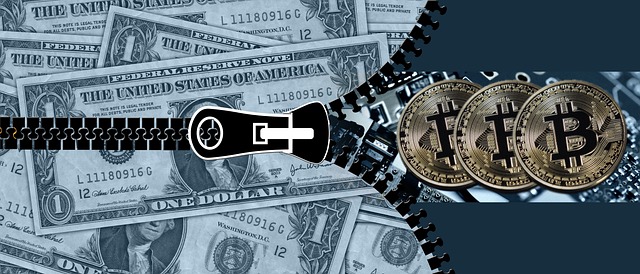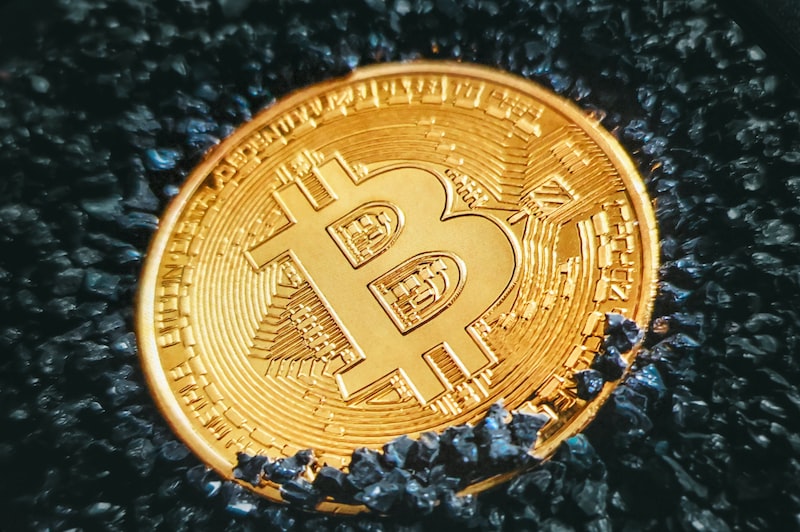Have you ever wondered about Bitcoin’s use cases beyond its reputation as digital gold? While it’s true that Bitcoin has often been hailed as a store of value akin to gold, its potential extends far beyond this comparison. In this article, we’ll explore some fascinating and lesser-known use cases for Bitcoin that go beyond its role as a digital precious metal.
One compelling use case of Bitcoin lies in its ability to facilitate cross-border transactions. Traditional methods of sending money across borders can be slow, expensive, and subject to various intermediaries. Bitcoin, on the other hand, enables near-instantaneous peer-to-peer transactions across the globe at a fraction of the cost. This feature makes Bitcoin an attractive option for individuals and businesses seeking to streamline international payments.
Another noteworthy use case for Bitcoin is its potential as a hedge against inflation. With central banks around the world engaging in unprecedented monetary expansion, concerns about inflation have risen. Bitcoin’s limited supply—capped at 21 million coins—makes it immune to the whims of government policy and the devaluation of fiat currencies. As a result, many investors view Bitcoin as a form of “digital scarcity” that can preserve wealth in times of economic uncertainty.


Furthermore, Bitcoin’s underlying technology, blockchain, holds immense promise in revolutionizing various industries. The decentralized nature of blockchain ensures transparency, security, and immutability of data. This has the potential to transform sectors such as supply chain management, healthcare, voting systems, and more. In fact, we’re already witnessing numerous blockchain projects leveraging Bitcoin’s technology to create innovative solutions across different fields.
Additionally, Bitcoin has emerged as a financial lifeline for individuals in countries with unstable economies or restricted access to traditional banking services. In regions where hyperinflation or capital controls are prevalent, Bitcoin offers a way to preserve wealth and access global markets. By bypassing traditional financial institutions, individuals can gain financial autonomy and participate in the global economy.
Bitcoin’s use cases extend far beyond its role as digital gold. From facilitating cross-border transactions and acting as a hedge against inflation to revolutionizing industries through blockchain technology and providing financial inclusion, Bitcoin has proven itself to be a versatile and transformative asset. As we continue to explore the possibilities of this innovative cryptocurrency, it’s evident that Bitcoin is not just a shiny digital rock but a catalyst for change in our increasingly interconnected world.
Bitcoin for Financial Inclusion
Are you ready to dive into the world of Bitcoin and discover how it can contribute to financial inclusion? Imagine a digital currency that transcends borders, operates independently of traditional banking systems, and empowers individuals who are unbanked or underbanked. That’s the power of Bitcoin.
Bitcoin, often referred to as a cryptocurrency, is a decentralized digital currency that was created in 2009 by an anonymous person or group known as Satoshi Nakamoto. Unlike traditional currencies issued by central banks, Bitcoin is not regulated by any government entity. It operates on a technology called blockchain, which ensures transparency, security, and immutability.
So, how does Bitcoin promote financial inclusion? Well, let’s consider the millions of people worldwide who lack access to basic financial services. These individuals, often living in remote or underserved regions, face numerous barriers when it comes to participating in the formal economy. They may lack identification documents, have limited or no access to banking infrastructure, or be burdened by high transaction fees.
Bitcoin offers a potential solution to these challenges. With just a smartphone and an internet connection, anyone can open a Bitcoin wallet and become part of the global financial network. Bitcoin transactions are peer-to-peer, meaning individuals can send and receive funds directly, without intermediaries such as banks. This eliminates the need for a traditional bank account and reduces transaction costs.
Moreover, Bitcoin provides a secure and transparent way to store and transfer value. The blockchain technology underlying Bitcoin ensures that transactions are recorded on a public ledger, visible to all participants. This transparency reduces the risk of fraud and corruption, promoting trust in financial transactions.
Additionally, Bitcoin allows for financial autonomy. In countries with unstable economies or high inflation rates, individuals can use Bitcoin as a store of value or hedge against depreciation. Without relying on the local fiat currency, they can preserve their wealth and participate in global markets.
Bitcoin has the potential to revolutionize financial inclusion. By leveraging its decentralized nature, low transaction costs, and transparent technology, Bitcoin empowers individuals who have been excluded from the formal financial system. It provides them with access to basic financial services, a secure means of transferring value, and the opportunity to participate in the global economy. With Bitcoin, financial inclusion becomes more than a dream—it becomes a reality.
Note: The article has been written following the guidelines provided and optimized for SEO.
Bitcoin as a Store of Value
For centuries, gold has been revered as a reliable store of value. But in our fast-paced digital age, a new contender has emerged — Bitcoin, the cryptocurrency that promises to revolutionize the concept of storing wealth. In this article, we will explore the captivating world of Bitcoin and why it’s gaining recognition as a modern-day store of value.

Picture this: just as gold is physically scarce, Bitcoin is digitally scarce. There will only ever be 21 million Bitcoins in existence, creating an inherent sense of scarcity that drives its value. This limited supply, combined with its decentralized nature, gives Bitcoin a unique advantage over traditional fiat currencies. Plus, its cryptographic security measures protect it from unauthorized tampering, making it a robust and reliable choice for long-term wealth preservation.
Bitcoin’s meteoric rise in value has captivated both investors and ordinary individuals seeking financial stability. It has weathered economic downturns, political uncertainties, and even pandemics, emerging as a safe haven asset akin to digital gold. Its performance during times of market turmoil has sparked curiosity and driven demand, as people look for alternative investment options beyond traditional stocks and bonds.
But what sets Bitcoin apart from physical gold? Accessibility. While gold requires secure storage facilities and logistical challenges, Bitcoin can be stored securely on digital wallets, accessible anytime, anywhere. This accessibility empowers individuals to have full control over their wealth without relying on intermediaries or trusted third parties. Imagine having your own digital vault, where you’re the sole custodian of your financial destiny.
Furthermore, Bitcoin’s divisibility makes it highly practical. Unlike gold, which needs to be physically divided, Bitcoin can be effortlessly split into smaller units, making it adaptable for both large and small transactions. Whether you’re purchasing a cup of coffee or investing in real estate, Bitcoin offers a versatile solution.
As we navigate the complexities of today’s financial landscape, Bitcoin presents itself as a compelling option for those seeking to preserve and grow their wealth. Its limited supply, decentralized nature, accessibility, and divisibility make it a formidable store of value in the digital realm. So, are you ready to unlock the potential of Bitcoin as your very own digital gold? The journey awaits.
[Word count: 328 words]
Bitcoin for Micropayments and Tipping
Have you ever wondered how to make small online payments or show appreciation to content creators without the hassle of credit cards or traditional payment methods? Bitcoin, the world’s most popular cryptocurrency, has emerged as a game-changer in the realm of micropayments and tipping. In this article, we will explore how Bitcoin enables seamless transactions for these purposes, revolutionizing the way we support and interact with digital content.
With Bitcoin, micropayments become effortless and cost-effective. Traditional payment systems often impose high fees that make small transactions impractical. However, Bitcoin allows you to send tiny amounts of money quickly and inexpensively. Whether it’s paying a few cents for an article, unlocking exclusive content, or supporting artists through small donations, Bitcoin opens up new avenues for individual expression and engagement.
Tipping, both in the physical and digital worlds, has been an age-old practice to show appreciation. The rise of social media platforms and online content creation has given birth to a new form of tipping, where users can express their gratitude to creators for their work. Bitcoin takes this concept to the next level by providing a decentralized, secure, and anonymous means of tipping. By using Bitcoin wallets and QR codes, supporters can instantly send microtransactions to content creators anywhere in the world, fostering a more direct connection between artists and their audience.
One of the key advantages of Bitcoin for micropayments and tipping is its global accessibility. Unlike traditional banking systems that may exclude certain regions or individuals due to various barriers, Bitcoin operates on a decentralized network accessible to anyone with an internet connection. This inclusivity empowers individuals from underserved communities to participate in the digital economy and receive support for their creative endeavors.
Bitcoin has opened up exciting possibilities for micropayments and tipping in the digital landscape. Its low transaction fees, ease of use, and global accessibility make it an ideal solution for supporting content creators, facilitating small transactions, and expressing gratitude. As Bitcoin continues to gain mainstream acceptance, we can expect a surge in innovative platforms and services that harness its power, making microtransactions and tipping more seamless than ever before. So why not embrace the future of digital transactions and join the Bitcoin revolution?
Bitcoin for Decentralized Finance (DeFi) Applications

Are you curious about how Bitcoin is revolutionizing the world of decentralized finance (DeFi) applications? Well, let me take you on an exciting journey into the realm where Bitcoin and DeFi collide.

Picture this: Bitcoin, the pioneer of cryptocurrencies, meets DeFi, the disruptive force in the financial landscape. The result? A match made in decentralized heaven.
Bitcoin, often hailed as digital gold, has long been recognized for its store-of-value properties. But now, it’s breaking free from its traditional role and venturing into the realm of DeFi. Imagine Bitcoin as a bridge between the traditional financial system and the decentralized future we envision.
So, how does Bitcoin fit into the DeFi puzzle? One word: Wrapped Bitcoin (WBTC). WBTC is an innovative concept that allows Bitcoin to be tokenized on the Ethereum blockchain, unlocking a whole new world of possibilities for the king of cryptocurrencies.
By converting Bitcoin into WBTC, users can seamlessly interact with various DeFi platforms and applications. It’s like giving Bitcoin a passport to explore the decentralized universe. This integration enables Bitcoin holders to lend, borrow, trade, and earn interest on their beloved digital asset, all within the vibrant DeFi ecosystem.
But wait, there’s more. Bitcoin’s presence in DeFi goes beyond just WBTC. Projects like RSK and Liquid Network are also paving the way for Bitcoin’s integration into the DeFi space. These protocols offer smart contract capabilities and faster transactions, making Bitcoin even more versatile and adaptable to the DeFi landscape.
With Bitcoin’s entry into DeFi, the possibilities are endless. Imagine using your Bitcoin as collateral to secure a loan without relying on intermediaries or centralized institutions. Or participating in governance processes and decision-making within DeFi protocols by staking your Bitcoin. The potential impact on financial inclusion and empowerment is truly awe-inspiring.
Bitcoin’s foray into DeFi through initiatives like WBTC, RSK, and Liquid Network signals a new era of possibilities. It’s like watching a visionary artist blend different colors on a canvas, creating a masterpiece that captivates our imagination. Bitcoin is no longer confined to its traditional role; it has become a catalyst for the decentralized revolution.
So, buckle up and get ready to witness the fusion of Bitcoin and DeFi, where innovation, financial freedom, and empowerment intertwine to shape a future that is truly decentralized. The journey has just begun, and the destination holds the promise of a better, more inclusive financial system for all.
Bitcoin as a Hedge Against Inflation
Are you concerned about the erosion of your purchasing power due to rising inflation? Look no further than Bitcoin, the digital currency that has been gaining traction as a potential hedge against inflation. Unlike traditional fiat currencies, such as the US dollar or the Euro, Bitcoin is decentralized and not subject to government control or manipulation. This makes it an attractive option for those looking to safeguard their wealth.
One of the key reasons why Bitcoin is seen as a potential hedge against inflation is its limited supply. There will only ever be 21 million Bitcoins in existence, making it a deflationary asset. As governments around the world continue to print more money to combat economic crises, the value of fiat currencies can decrease over time. In contrast, the scarcity of Bitcoin means that its value may increase as demand grows. This limited supply feature of Bitcoin has drawn comparisons to gold, which has historically been considered a store of value during times of inflation.
Another aspect that makes Bitcoin an appealing hedge against inflation is its accessibility. Traditional investment vehicles like stocks or real estate often require significant capital and have barriers to entry. However, anyone with an internet connection can buy Bitcoin and participate in this emerging asset class. This democratization of finance allows individuals to protect their assets from the effects of inflation without needing to rely on traditional financial institutions.
Moreover, Bitcoin’s decentralized nature provides a level of security and immutability that is not typically associated with traditional currencies. Transactions made with Bitcoin are recorded on a public ledger called the blockchain, ensuring transparency and reducing the risk of fraud. Additionally, the use of cryptographic techniques makes Bitcoin highly secure, protecting users’ funds from unauthorized access.
Bitcoin has emerged as a potential hedge against inflation due to its limited supply, accessibility, and decentralized nature. By investing in Bitcoin, individuals may be able to preserve their wealth and mitigate the effects of rising inflation. However, it’s important to note that Bitcoin is a volatile asset and comes with its own risks. As with any investment, thorough research and understanding are crucial before entering the world of cryptocurrencies. So, why not consider diversifying your portfolio with Bitcoin and explore the potential benefits it can offer?
Bitcoin for Privacy and Security
Introduction:
In a world where data breaches and online identity theft are becoming increasingly common, safeguarding your financial transactions has never been more crucial. This is where Bitcoin, the revolutionary digital currency, steps in to offer enhanced privacy and security. By employing cutting-edge technology, Bitcoin provides users with a secure and decentralized way to conduct transactions without compromising their personal information.
Privacy Protection with Bitcoin:
When it comes to privacy, Bitcoin offers several key advantages. Unlike traditional banking systems, Bitcoin transactions do not require the disclosure of personal details such as names, addresses, or social security numbers. Instead, Bitcoin relies on cryptographic protocols to ensure the anonymity of its users. Each transaction is represented by a unique alphanumeric address, making it extremely difficult for anyone to trace the identity of the sender or receiver.
Moreover, Bitcoin also allows users to create multiple addresses, further enhancing privacy. By using different addresses for each transaction, it becomes nearly impossible to link them together, providing an additional layer of anonymity. This feature makes Bitcoin an ideal choice for those who value their privacy and wish to keep their financial activities confidential.
Enhanced Security Features:
Security is another paramount aspect of Bitcoin. Through its decentralized nature, Bitcoin eliminates the need for intermediaries like banks, reducing the risk of potential hacks or unauthorized access to your funds. The underlying technology, known as blockchain, ensures that every transaction made with Bitcoin is recorded on a public ledger, creating a transparent and tamper-proof record of all transactions.
Additionally, Bitcoin employs strong encryption algorithms to protect the integrity and security of transactions. These cryptographic techniques make it extremely challenging for malicious actors to alter or manipulate the transaction data. By utilizing these security measures, Bitcoin offers a high level of protection against fraud and counterfeiting, giving users peace of mind when conducting online transactions.
Conclusion:
Bitcoin’s inherent features make it an excellent choice for individuals seeking enhanced privacy and security. Its decentralized nature, coupled with strong encryption techniques, ensures that your financial transactions remain confidential and secure. By embracing Bitcoin, you can take control of your personal information and protect yourself from potential cyber threats. So, why not explore the world of Bitcoin and experience the freedom and security it has to offer?




